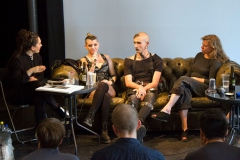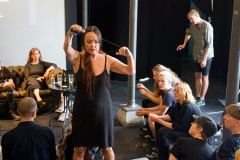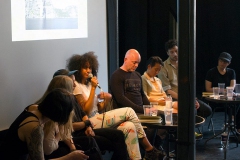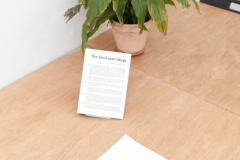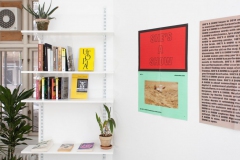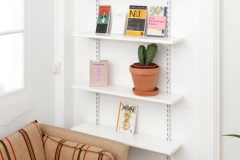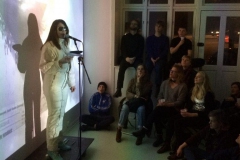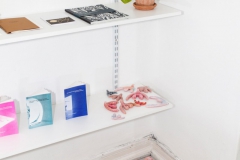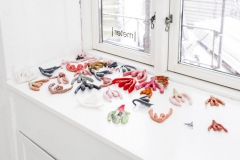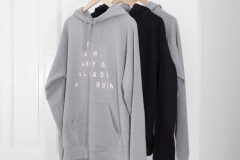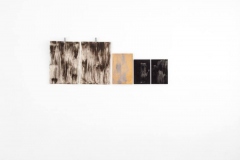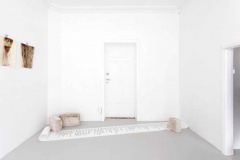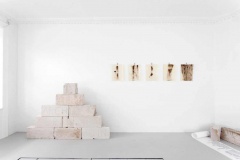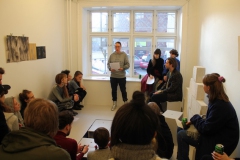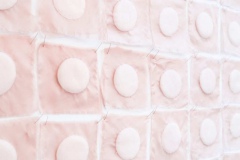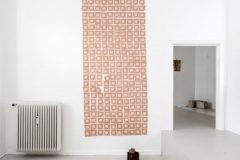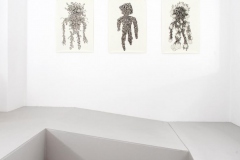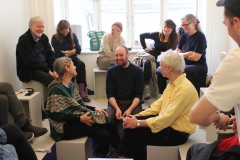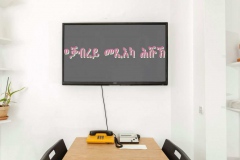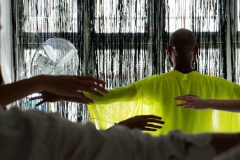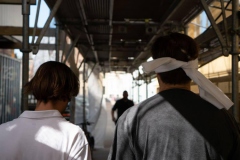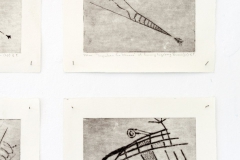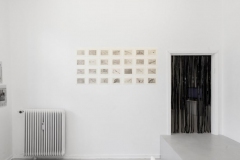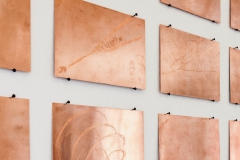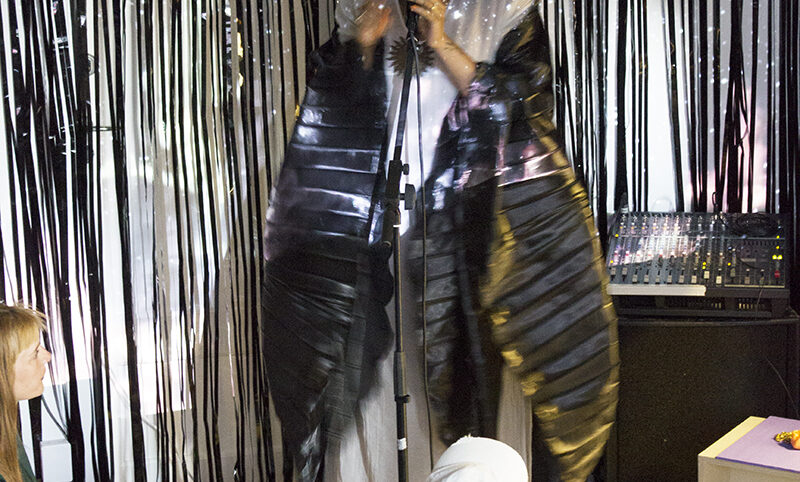
Date: 03 Mar 2018 - 23 Jun 2018
Time: 00:00 - 00:00
Location:
SHAKING THE HABITUAL
We invite you to join us in exploring what a future without patriarchy might be. Over a period of 4 months artists, writers, activist groups, debaters and more will join in the search for an answer to the question: what is your feminist utopia?
We rarely talk about utopia anymore. Most future scenarios today are determined by a sense of disaster and the dystopic outcome of environmental catastrophe, overpopulation as well as economic and social exploitation. Utopia seems perhaps too unrealistic. Still attached to the phenomenon lingers a reminder of how ideas of better societies in many instances turned into totalitarian regimes.
However throughout history the utopia has been an important tool in reimagine future scenarios. It has created a free space where we can play with different social structures that challenges existing norms and presumptions. For this reason utopias have also been important in creating a space from where voices of the less powerful have been able to safely reimagine their position in society.
Utopian then becomes a refuge or shelter wherein we may safely envision a changed society. And although mere metaphor located in no real place, utopia nonetheless has power – utopian ideals and ideas change minds: changed minds then change worlds.
Carol Farley Kessler “Daring to Dream: Utopian Fiction by United States Women Before 1950”, 1995.
We have seen visualisations of a possible future in feminist literature dating back to the 17th century where writers such as Margaret Cavendish imagined women in positions of power to Muslim feminist Begum Rokeya whose work in the early 20th Century drew on Science Fiction in order to reimagine a society based on equality. The utopian idea can also be found in Afrofuturism. Often regarded as a cultural genre, a re-imagining of African traditions that projects techno-futuristic possibilities Afrofuturism as exemplified by Jazz legend Sun Ra envisions both past and possible new futures.
We understand patriarchy as a structure that maintains stereotypes and police certain ideas of gender, race, sexuality etc. Consequently patriarchy is not just a system oppressing women but something that affects everyone.
We take our point of departure in intersectional feminism recognizing that discrimination can be experienced in varying configurations as fx.: racism, sexism, homophobia, transphobia, ableism, xenophobia, classism and more – that they can be interconnected but also recognizing that not everyone has the same experience of discrimination.
For the exhibition Shaking the habitual we move away from the idea of a traditional exhibition instead focusing on a more event-oriented program. The purpose is, not to present one vision of a future society but many thereby escaping consensus and uniformity for the sake of diversity and potentially conflicting views.
meter’s physical exhibition space has been rebuild and altered. The result is a part of scenographer Marie Moberg’s vision of an ultra-democratic place accessible to all bodies and opinions. Within this space we will be hosting artworks, performances, screenings, readings, workshops, seminars, talks, panel discussions and a library of various publications.
Program
March 3 / Opening of Shaking the habitual: What is your utopia? Participating artists: Imri Sandström, Marie Moberg, Nanna Lysholt Hansen, Peter Brandt, Stathis Tsemberlidis. Text performance: IN THE NOT-APOCALYPSE by Imri Sandström
March 15 / Science Fiction i et feministisk perspektiv. Mette Moestrup and Olga Ravn read excerpts from and talk about Ursula Le Guin’s authorship; they talk about Olga Ravn’s coming sci-fi novel: De ansatte as well as read from their own bodies of work.
April 7 / Workshop: What is your utopia? Artist Tine Tvergaard will facilitate a conversation open to everyone in which ideas of utopia are explored and power relations, fixed dynamics and pace are challenged.
April 21. / Opening of Shaking the habitual: When does the future begin? Participating artists: Jacob Remin, Linda Laser, Mariam Haile & Rasmus Brink Pedersen.
May 17 / Performance: Dear Daughter/Anatomy of the Chtulucene #6 by Nanna Lysholt Hansen.
May 23 / Workshop: How to quit: On digital stress and mindful computing. Do you control the computers or do the computers control you? By Jacob Remin, Henrik Chulu, Maia Kahlke, Halfdan Mouritzen & Andreas Hjort Bundgaard.
May 24 / Performance: Økopoesi-utopier by SHE’S A SHOW (Mette Moestrup & Miriam Karpantschof) & eco-poet Angela Rawlings.
May 25 / Cph Art Week: Art Tour Copenhagen-based Project Spaces. Presentation of our current exhibition.
June 9 / Laboratory for Aesthetics & Ecology: Book release, panel debat & film screening. Laboratory for Aesthetics & Ecology invite us all to the release of a publication with texts by Donna Haraway, Paul B. Preciado & Ursula Andkjær Olsen and a panel discussion with Yong Sun Gullach, Marie Kølbæk Iversen, Ursula Andkjær Olsen & Nanna Mansa. Last but not least a film screening of the documentary: Storytelling for Earthly Survival.
June 14 / A Cyborg Witch Performance: Dra. Kaligari’s Cabinet. The Kaligari Cabinet is a collaboration between Klar Kinki and Misfita Terra. The performance will be a body decolonization, gynegore, Blood magic, transhackfeminist, science freak mutant cabaret. It is arranged in collaboration with Nazila Kivi & Salon Hysteria.
June 16 / Conference: Shaking the habitual at Warehouse9 – on feminist utopias. Nazila Kivi will host a Salon Hysteria. Also participating artists and activist groups focusing on gender, sexuality, race and discrimination are invited to present their vision of utopia.
June 22 / Conversation & Workshop: How to quit. Jacob Remin & friends will continue their performative conversation and workshop series in which concrete tools are presented on how to alter / subvert and quit mainstream internet infrastructures.
The exhibition is supported by:
The Danish Arts Foundation, The City of Copenhagen, Nørrebro Lokaludvalg, Copenhagen Libraries & Vesterbro Lokaludvalg.

